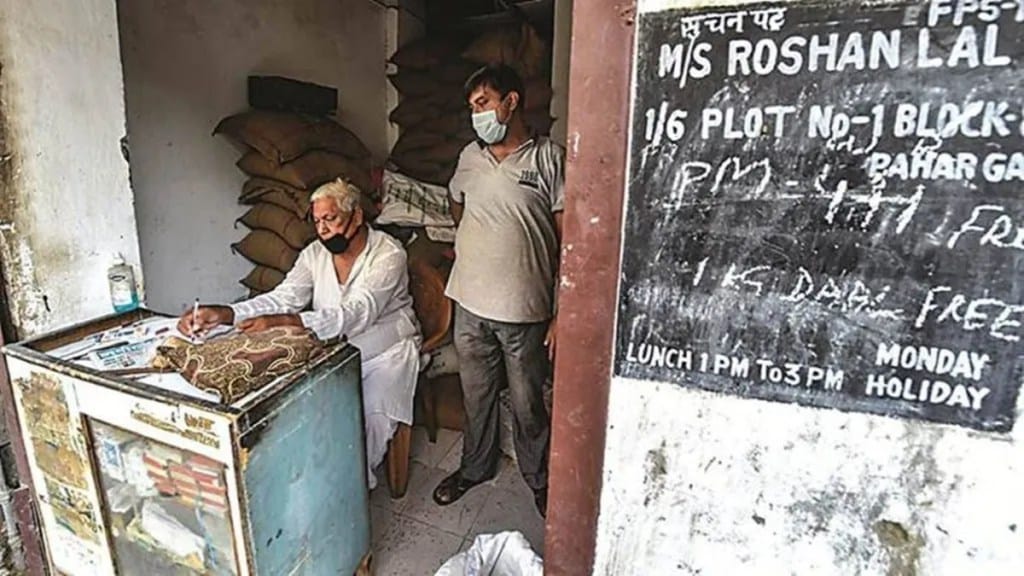To reduce pilferage of food grains and weed out ineligible beneficiaries, the government is aiming to complete digital authentication or eKYC of over 800 million National Food Security Act (NFSA) beneficiaries, who get free foodgrains under Pradhan Mantri Garib Kalyan Anna Yojana (PMGKAY), soon.
Sources told FE that so far e-KYCs of 658 million or 82% of over 809 million people registered NFSA beneficiaries have been completed using their Aadhaar authentication.
“The aim is to ensure that only those persons whose names are there in the ration cards get the free grain without any duplication,” an official said, adding that there are instances where beneficiaries are enrolled twice under different ration cards following migration, marriage and other causes.
“Using application programme interface, we have enabled all the fair price shops (FPS) to carry out e-KYCs and data in Aadhaar cards must match details in the ration cards ” the official added.
Some of the states where e-KYCs authentication is slow are Maharashtra (54%) and Haryana (48%).
States have completed e-KYC of the beneficiaries include, Bihar (78%), Jharkhand (74%), Uttar Pradesh (81%) and Gujarat (81%).
Currently e-KYCs of all the heads of the family under whose names ration cards are issued have been completed. The food ministry has completed Aadhar seeding of 204 million household ration cards.
Sources said there will be deletion of beneficiaries after the completion of eKYC process, while new beneficiaries are being added to the number of people covered under the NFSA. However, there is a possibility of reduction in the number of beneficiaries due to economic criteria.
Any savings to the exchequer on account of removing ineligible beneficiaries of food subsidy will depend on how the procurement, storage and distribution of food grains are managed, and economic costs are reined in.
NFSA mandates coverage of 75% of rural and 50% of urban population are entitled to get 5/kg of rice or wheat monthly.
Currently 56-58 million tonne of foodgrains are distributed under free ration scheme annually and the government has budgeted Rs 2.03 lakh crore as food subsidy for FY26.
So far, 58 million fake or duplicate ration cards have been removed from the system. Each ration card includes four to five members on an average.
The beneficiaries who are covered under national portability of ration card (ONORC) also referred as one nation one ration cards initiatives aimed at allowing migrant workers to avails free grain at the place of their work, are allowed to carry out e-KYC at a fair price shops (FPSs) where they currently reside instead of travelling to locations where the person hails.
Currently, 0.54 FPSs distribute food grain annually under PMGKAY or free of cost.
Before January 2023, marginal prices were paid by the NFSA beneficiaries, and the shift to a regime of completely free supply of grains raised the cost by 3-4%.
Under the reforms initiated to improve the targeted PDS, the government has initiated several measures such as digitisation of ration cards, Aadhaar seeding of ration cards and installation of electronic point of sale (ePoS) machines at most of these FPSs.
Officials said that the national portability of ration card under ONORC initiative has ensured regular availability and accessibility of free food grains in any part of the country, through the same existing ration card, irrespective of the state or district from where the ration card was issued.
The government has extended the free ration scheme for five years till end of 2028 which would cost the exchequer around Rs 11.8 trillion.

